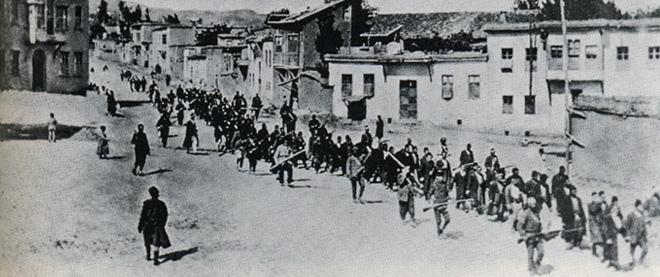
UNL's Harris Center for Judaic Studies will present "Forgotten Genocides: New Perspectives on a Less Known History" on April 10 in the Nebraska Union Auditorium, 14th and R streets.
The symposium welcomes eight scholars to discuss new perspectives and information on some of the lesser-known genocides and mass atrocities of the 20th century. The goal of the symposium is to add to the broader discussion regarding understudied genocides, which may foster more communication and greater understanding among different disciplines and specialists.
David Forsythe, professor emeritus of political science at UNL, will give the opening lecture. He will discuss the well-developed body of international law prohibiting atrocities and actions that may be taken to oppose genocide, crimes against humanity, and war crimes. Forsythe will speak about how these norms are implemented by states that calculate various costs based on their self-interest.
"Even at the United Nations, it is states that take the key decisions and decide -- or not -- to loan power to that organization," Forsythe said. "So norms and standards have changed a great deal, but calculations of national self-interest, not so much. The result is great inconsistency in responding to atrocities, as per Libya and Syria."
Two panels follow the lecture. The schedule of events is:
9-10 a.m.: Opening Remarks by Jean Cahan, director of the Harris Center for Judaic Studies, followed by Forsythe's opening lecture.
10 a.m.-noon: Talks by the following UNL scholars: Suping Lu, professor of libraries, "Unearthing the Nanjing Massacre through American Diplomatic Channel"; Gerald Steinacher, assistant professor of history, "Mussolini in Africa: Italy's War of Aggression against Ethiopia, 1935-41"; and Bedross Der Matossian, assistant professor of history, "Revisiting the Debate about the Concentration Camps during the Armenian Genocide."
2-4 p.m.: Talks by the following scholars: Hannibal Travis, associate professor of law at Florida International University, "Not Yet Forgotten: Genocide in Darfur and Sudan's Peripheral States"; Patrice McMahon, associate professor of political science and global studies at UNL, "Reconciliation after War and Genocide in Bosnia"; and Chantal Kalisa, associate professor of modern languages and literatures at UNL, "We Are Rwandan: Performing Trauma and Memory Transnationally."
The symposium is free and open to the public. It is sponsored by the Harris Center for Judaic Studies, with additional support from the Human Rights and Humanitarian Affairs Program and the Department of History.
-- Deann Gayman, University Communications
More details at: http://go.unl.edu/q42